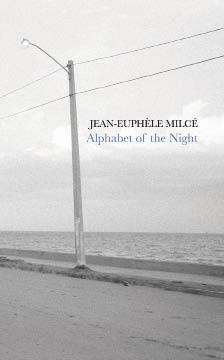Port-au-Prince, the Haitian capital, lies on a marshy bay encircled by mountains. It was founded in 1749 by the colonial French and named after a vessel, Le Prince, which anchored there about 1680 (and not, as the dictator ‘Papa Doc’ Duvalier apparently liked to believe, after The Prince by Machiavelli). Thousands subsist in shanties built on landfill at the harbour’s edge; even a light rainfall can put their homes under flood. Uptown, an illusion of space prevails. The presidential palace, a vast lair of power, stands at one end of a palm-fringed plaza.
On Tuesday, 12 January, Port-au-Prince teemed as usual with cigarette vendors, bootblacks and marchandes. On the Rue du Commerce, office workers were making last-minute purchases before returning home. It was 4.30 pm, and a fug of burning refuse hung over the city, as always. The earthquake lasted 60 seconds and pulverised the Palais de Justice, the Palais de Ministres, the twin-spired pink and white cathedral, as well as the presidential palace. An estimated 150,000 people have died in Port-au-Prince alone; the main cemetery is now a dumping-ground for corpses. (‘Souviens Que Tu Es Poussière’, proclaims the sign above the entrance.)
By any standards, Haiti represents a very great concentration of misery and dashed hopes. Since independence in 1804, emperors, kings and presidents-for-life have misruled the Caribbean island through violence and a theft of public funds. The West has been complicit in the misrule. The 1957-1986 regime under ‘Papa Doc’ and his son ‘Baby Doc’ was supported by the United States as a bulwark against communist Cuba. ‘God has chosen Haiti to test out his concept of Hell’, writes Jean-Euphèle Milcé in his novel Alphabet of the Night, first published in France in 2004.
Born in Haiti 40 years ago, Milcé has reportedly survived the earthquake. His brief novel unfolds in the 1980s during the Jean-Claude ‘Baby Doc’ Duvalier tyranny. Throughout, Port-au-Prince is portrayed as a sort of Paris of the gutter; beneath the dash of French custom moulders a ‘foul smelling’ city that has ‘lost all sense of being a capital’. The narrator, Jeremy Assaël, is the last line of a family of Haitian store-keepers. Each morning, under rain or burning sun, he unlocks the padlocks on his store on the Rue du Commerce and wearily greets his security guard Lucien, who happens to be his lover.
One day, shockingly, Lucien is shot dead by a passing policeman. Violent deaths are natural deaths in Haiti, and ‘Lucien died as he lived; without joy’, comments Jeremy, who is not only homosexual, but Jewish and white (three times an outsider, then, in predominantly black Haiti.) Unsettled by the murder, Jeremy decides to quit the family firm and set out on a pilgrimage across Haiti in search of a long-lost school friend of his called Fresnel, who has disappeared earlier, possibly also shot.
Along the way, we learn much about Haiti’s bewildering mixed bloods and ethnicities. Like the Syrians and Palestinians who settled in Port-au-Prince in the 1890s, Jews had set up as wholesalers and retailers, often ousting Haitians from their businesses round the Iron Market and inciting envy. A trace of resentment against ‘lezarabs’ (as Jews and Arabs are known in Haiti) lingers today, says Jeremy.
Written in a consciously poetic prose, The Alphabet of the Night radiates a shadowy menace, and shows the influence of the older Haitian writer René Depestre, whose novel Hadriana dans Tous mes Rêves won the French Prix Renaudot in 1988. Like Depestre, Milcé sees the national religion of Vodou (or voodoo, in the old orthography) as part of the island’s surrealisme quotidien — a peculiar fact of everyday life. For many Haitians, moreover, Vodou is the only means to rise above the misery of poverty and the devastation wreaked by natural disasters.
In the course of his quest, Jeremy consults a houngan or Vodou priest in the Artibonite valley for information about Fresnel. After due reflection, the priest intimates that Fresnel is alive and well somewhere in Florida. Armed with this news, Jeremy returns to the ‘no-life zone’ of Port-au-Prince, relieved that Fresnel is alive, but certain that Haiti is ‘done for’.
The real story with Haiti, however, is not the political violence or the corruption, but the extraordinary resilience of the Haitians themselves. ‘I am going to come back from the dead’, Jeremy declares early on in the novel, in a rare admission of hope. In recent weeks, many have been astonished by the courage and forbearance shown by Haitians, and perhaps now there may be some dim hope of renewal.
Ian Thomson’s Bonjour Blanc: A Journey through Haiti is published by Vintage.






Comments